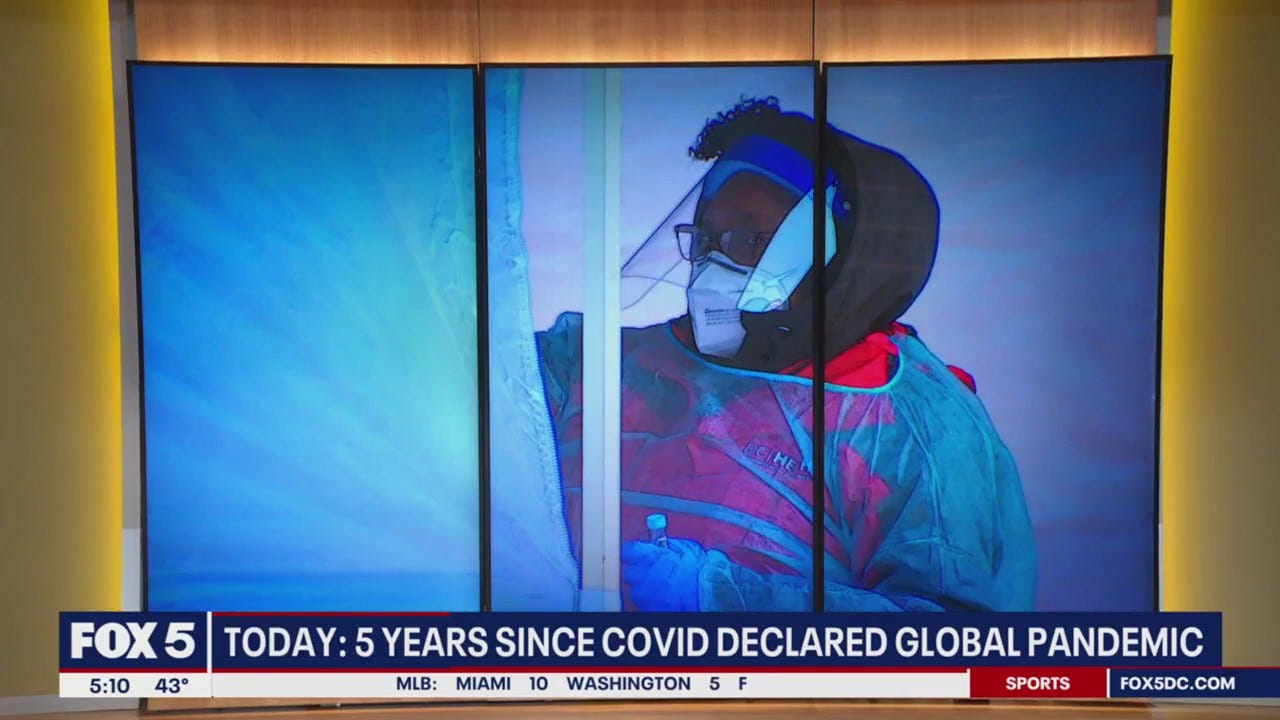As a doctor, I agree with the World Health Organization’s lead on emergency response that Americans are more vulnerable when we don’t work with scientists from across the globe.

5 years since COVID-19 declared a global pandemic
Tuesday marks five years since the start of the COVID-19 pandemic. On this day in 2020, the World Health Organization declared a global pandemic, triggering lockdowns across the world.
Fox – 5 DC
Dr. Maria Van Kerkhove, the World Health Organization’s technical lead for emergency response, told me in a recent interview on Fox News that she and her colleagues lacked enough information during the COVID-19 pandemic to make critical decisions.
“As you go through any outbreak, you constantly are looking to see, what can we be doing better?” Van Kerkhove said. “Certainly in the beginning, we did not have all of the information that we wanted. We didn’t have all of the information that we needed to be able to make the best decisions that we could at the time. I think as we were learning how this virus was spreading, clearly it was spreading before we really knew largely what was happening.”
Origins of COVID-19 are still unknown
Van Kerkhove said the WHO still doesn’t know for certain where the virus originated, knowledge that is key to preventing future pandemics.
Do we need to be more concerned about gain of function research in the lab, the mutation of viruses through natural occurrences, or both? I believe the answer is both, although I am more concerned about intentionally provoking a virus to mutate to forms that are more likely to infect or kill us.
The idea of a lab leak was never fully investigated at the beginning of the pandemic because China wouldn’t allow it. Nor did Chinese leaders receive enough international pressure to do so.
Van Kerkhove said she deeply regrets the divisiveness that the pandemic spawned, which eventually led to the decision by the U.S. government to withdraw from the WHO. As she noted, viruses don’t respect borders.
Yet, she also said that it is easy to overlook the remarkable progress made during the pandemic in treatments, prevention and diagnoses.
“The legacy of COVID cannot be just death and devastation,” Van Kerkhove said. “It cannot be the polarization and so much negativity. It has to be the capacities that were built.”
“The pathogens that I work on … with many experts around the world do not respect borders,” she said. “They don’t care about anyone’s political affiliation or how much money you have in the bank. They don’t care about the color of your skin. They look for opportunities to spread and to kill. And for me, one of the biggest tragedies right now is a lack of technical exchange with American scientists. And I hope that that changes very quickly because the world is safer with Americans at the table.”
Agreement with RFK Jr. on poor overall health
In a moment of accord rather than discord, Van Kerkhove expressed agreement with Health and Human Services Secretary Robert F. Kennedy Jr.’s statement to me in an earlier interview in which he emphasized that malnutrition and poor overall health led to worse outcomes for people with infectious diseases.
She said the fact that so many people around the world had poor baseline health before the pandemic made the toll of COVID-19 much worse.
That agreement on the need to improve overall health may be a starting point for the United States and the WHO to reengage.
America’s global health outreach has been greatly diminished through cuts to the U.S. Agency for International Development and to the Centers for Disease Control and Prevention. But continuing to work with the WHO would benefit Americans’ health and help protect us against viruses both old and new.
The WHO’s leaders have been more critical of China in recent years, and they’ve reformed the fee structure so that less of the burden is on American taxpayers.
As Van Kerkhove said, we live in a world where deadly pathogens don’t respect boundaries. The United States and the world need to support scientists who share information freely who aren’t hamstrung by secrets and threats. The WHO can benefit all of us.
Dr. Marc Siegel is a professor of medicine and medical director of Doctor Radio at New York University’s Langone Health. His latest book is “COVID: The Politics of Fear and the Power of Science.” Follow him on X: @DrMarcSiegel

